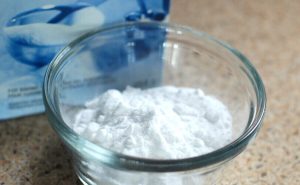Psyllium as a Treatment for Lowering Cholesterol Levels
Psyllium, a soluble fiber, has been scientifically proven to lower cholesterol levels in the body. This is achieved by its unique ability to selectively bind to bile acids in the digestive system, preventing their reabsorption into the bloodstream. Studies have shown that psyllium can significantly reduce cholesterol levels by inhibiting bile acid absorption, as these acids are derived from cholesterol.
Furthermore, psyllium may help reduce cholesterol levels because of its slower digestion rate. This mechanism permits the body to digest cholesterol from ingested food for an extended time before excreting it.
Plantago ovata seeds are commonly used as a nutritional supplement
Psyllium is a soluble fiber that has been demonstrated to have various health benefits, particularly for cholesterol levels. Plantago ovata seeds are commonly used as a nutritional supplement or ingredient in various food and beverage products.
Psyllium has been found in studies to reduce total cholesterol and low-density lipoprotein (LDL), also known as “bad” cholesterol. According to the findings of a study published in the Journal of the American Medical Association, participants with high cholesterol levels who participated in a 12-week intervention involving the consumption of 10 grams of psyllium twice daily experienced a 7% decrease in overall cholesterol levels and a 13% reduction in low-density lipoprotein (LDL) cholesterol levels.
Improve gastrointestinal function, and increase satiety
Psyllium effectively lowers cholesterol levels by inhibiting cholesterol absorption into the bloodstream by adhering to cholesterol in the digestive system. As a result, the amount of cholesterol circulating inside the body decreases, helping to reduce the risk of heart disease and other related health issues.
Psyllium has been shown to provide various health benefits, most notably lowering cholesterol levels. It can also help regulate blood glucose levels, improve gastrointestinal function, and increase satiety, all of which can help you lose weight. Furthermore, it can generate feelings of satiety, so it acts as a barrier to excessive food consumption.
Supplement or regimen for your specific needs
Introducing psyllium into your diet can be a beneficial step towards lowering cholesterol and improving overall health. However, it’s crucial to consult a healthcare professional before starting any new supplement or dietary regimen. This step is essential to ensure the safety and suitability of the recommended supplement or regimen for your specific needs.
While psyllium is generally safe for consumption, it can cause some discomforting side effects like flatulence, diarrhea, and gas. To minimize these reactions, it’s recommended to start with a low dose and gradually increase it to the recommended amount. Additionally, staying hydrated by drinking enough liquids is crucial when using psyllium, as it helps maintain its effectiveness and safety, especially considering its ability to aid in water extraction from fecal waste.
Before contemplating psyllium as a cholesterol-lowering agent, please consult with one’s primary healthcare physician. The professionals will advise you on the best dosage for your needs and examine to ensure your safety when using psyllium.













